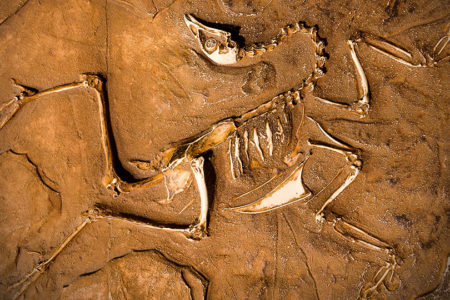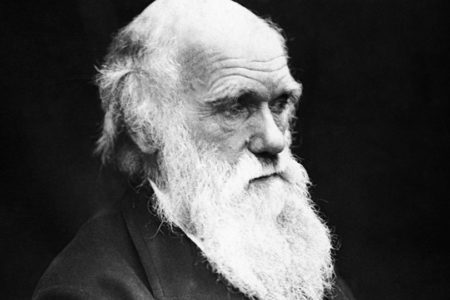Hannah and the God Who Hears Conclusion
I dislike pain. It doesn’t matter how many variations it may come in; I dislike them all.
I had been a Christian only two years when a dear friend gave me a book titled Hinds’ Feet on High Places by Hannah Hurnard. “It’s wonderful,” she said. “You’ll love it.”
I hated it. It depressed me. I never finished it back then. It was about pain and suffering and how God uses them both to help us grow spiritually.
But who wants pain? Certainly not I. Yet much to my chagrin, I’ve come to understand that one of our most serious defects as human beings is our tendency to seek God when we’re in trouble but become prideful and forget about Him when we’re not. Moses warned the Israelites about this dangerous propensity (Dt. 6:10–12; 8:11–17), and the awful events in the book of Judges attest to it.
But God truly uses our pain for our good if we let Him. He humbles us, draws us closer to Him, and enables us to glorify Him. The result is often a wonder to behold. Such was the case with Much-Afraid, the main character in Hurnard’s book; and such was the case with Hannah in the Old Testament.
At the height of her affliction, God heard Hannah’s prayer and gave the barren woman the son she so desperately wanted. But Hannah’s story does not end there.
After she weaned Samuel (probably at three years old), Hannah made good her vow to give her son to the Lord all the days of his life. She brought the child from their home in Ramah to the Tabernacle in Shiloh. And there she left him with Eli, the high priest, who had done such a miserable job raising his own sons that God later had them killed.
But it was not Eli to whom Hannah was entrusting Samuel; it was God. Then she extolled the Lord in a magnificent prayer of praise and faith, much like the one Mary offered more than 1,000 years later when she learned she would give birth to Jesus.
Hannah’s profound hope and trust in God as Sovereign, Creator, and Judge resound in the beautiful words of her soliloquy, which points ultimately to the King-Messiah:
No one is holy like the Lᴏʀᴅ, for there is none besides You, nor is there any rock like our God. The Lᴏʀᴅ kills and makes alive; He brings down to the grave and brings up. For the pillars of the earth are the Lᴏʀᴅ’s, and He has set the world upon them. He will guard the feet of His saints, but the wicked shall be silent in darkness. For by strength no man shall prevail. The adversaries of the Lᴏʀᴅ shall be broken in pieces….The Lᴏʀᴅ will judge the ends of the earth. He will give strength to His king, and exalt the horn of His anointed (1 Sam. 2:2, 6, 8–10).
Each year Hannah would sew a little coat for Samuel and bring it to him in Shiloh (v. 19). So Samuel grew up at the Tabernacle, ministering before the Lord.
However, God, whose tenderness, love, and mercy far exceed our understanding, showered His grace on Hannah and gave her three more sons and two daughters, whose names Scripture never mentions (2:21). It mentions only Samuel.
Through Samuel, one of the most righteous men who ever lived, God began to clean up the mess that was Israel. In a single day, as He had warned, He rid Himself of Eli’s evil, corrupt sons who had defiled His holy name while serving as priests. The same day, after hearing the philistines had defeated Israel, killed 30,000 men including his sons, and captured the Ark of the Covenant, Eli, at 98, died as well (4:18). From then on, Samuel judged Israel until his death.
With Samuel, God made a new beginning in Israel, formally instituting both the prophetic office (Acts 3:24; 13:20; Heb. 11:32) and monarchy and establishing the house of David, the lineage of the Messiah.
How often Samuel saw his mother we do not know. However, Scripture says, “He went from year to year on a circuit to Bethel, Gilgal, and Mizpah, and judged Israel in all those places. But he always returned to Ramah, for his home was there” (1 Sam. 7:16–17). And it was there he was buried (25:1).
The absence of trouble in life is often mistaken for blessing. Yet our deepest, most meaningful encounters with the Almighty—those that truly change us and glorify God—often result from our worst agonies.
Many years ago I attended a concert in a church here in New Jersey. The singer was a devout man of God named Paul Schumacher. His voice was beautiful, as was his testimony. He was dying of cancer and had undergone many surgeries over the years. To record his final CD, he had to lie down between songs to catch his breath.
I’ll never forget what he told us. It went something like this: “Would I do it over again? No. But I wouldn’t have missed one day of what I’ve been through because it has brought me so close to the Lord.”
Do I want trouble in life? No. Did Hannah want to spend so many years childless and tormented? I doubt it. But in the end we turn out like Much-Afraid, whose name was changed to Grace and Glory, whose weakness was made strength in God, and whose heart was completely satisfied through His profound and unchanging love.







